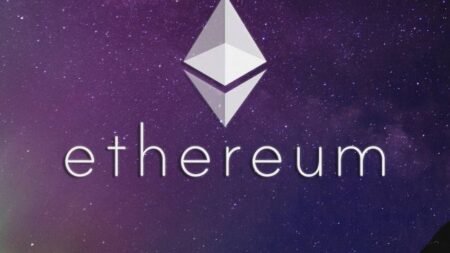When it comes to the demand for Ether spot ETFs compared to Bitcoin versions, a recent report indicates that there will likely be less interest in the former. One of the reasons cited for this is the absence of a staking feature in Ether ETFs, which ultimately results in lower spot conversion. Despite this, Bernstein, a broker, remains optimistic about the growth of institutional adoption in the crypto market, even amidst recent market pullbacks.
According to analysts Gautam Chhugani and Mahika Sapra from Bernstein, once Ether spot ETFs are approved for trading, they are expected to attract similar sources of demand as Bitcoin ETFs, albeit on a smaller scale. They predict that the lack of an ETH staking feature in the ETF will impact spot ETH conversion, but believe that the basis trade will gain traction over time, contributing to healthy liquidity in the ETF market. The basis trade strategy involves buying the spot ETF and selling the futures contract simultaneously, then waiting for prices to converge.
With spot Ether ETFs nearing availability to U.S. investors after key regulatory filings were approved by the SEC last month, the potential for ETH as a primary tokenization platform is highlighted in the report. Authors mentioned the strong use-cases for ETH in stablecoin payments, as well as tokenizing traditional assets and funds. However, they also stress the importance of a more refined regulatory framework for Ether and other digital assets, anticipating a positive shift in sentiment around the U.S. elections as the probability of a Republican victory grows and President Trump’s pro-crypto stance.
JPMorgan, a prominent player on Wall Street, echoes Bernstein’s sentiment about the lower demand for spot Ether ETFs compared to Bitcoin ETFs. The report emphasizes that Bitcoin’s status as the first mover in the crypto space may lead to a saturation of overall demand for crypto exchange-traded funds. Despite this prediction, both reports agree that the structural adoption cycle within the crypto market remains intact, despite recent market fluctuations.
In conclusion, while Ether spot ETFs are expected to see lower demand compared to Bitcoin ETFs due to certain factors such as the absence of a staking feature, analysts from Bernstein remain optimistic about the growth of institutional adoption in the crypto market. As the landscape of digital assets continues to evolve, the potential for Ether as a tokenization platform and a tool for traditional asset tokenization is highlighted. With a more refined regulatory framework and a positive sentiment around U.S. elections, the narrative surrounding digital assets like Ether may see a favorable shift in the near future.



















